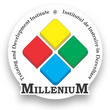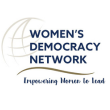Organizații vizate:
Granturi și Finanțări
- Detalii
- Categorie: Granturi
Institute for War and Peace Reporting (IWPR) - Request for Grant Applications - Building Resilience in the Eastern Neighbourhood (BREN) Project
Informațiile prezentate în articolul de mai jos pot să nu mai fie actuale sau să nu mai reflecte activitățile și programele curente. Anunțul este păstrat în arhivă pentru a asigura transparența și accesul public la informațiile despre inițiativele și proiectele implementate anterior.
Request for Grant Applications
Project: Building Resilience in the Eastern Neighbourhood (BREN)
Open to: Civil society organisations in Moldova. Note: this includes new organisations and previous BREN partners.
Closing Date: 26 May 2024
Grant Amount: Up to GBP50,000
Estimated number of awards: 4-5
Project timeframe: Up to 7 months (all projects must end by 31 January 2025)
The Institute for War and Peace Reporting (IWPR) is currently accepting applications from civil society organisations in Moldova as part of the programme Building Resilience in the Eastern Neighbourhood (BREN).
The overall aim of the BREN programme is to enhance the human security of women and marginalised groups in Armenia, Azerbaijan, Georgia and Moldova through building the resilience of civil society.
In Moldova, BREN has the following thematic priorities:
- Advancing and supporting progress on the Women, Peace, and Security agenda
- Increasing inclusion of diverse groups in peace and security discussion and decision-making
- Advancing the role of civil society and women’s rights organisations, in particular in conflict prevention, community reconciliation, and relief and recovery
Please note: this grant call is open to new organisations not previously supported under the BREN programme, as well as previous grantees. Partners previously supported under the BREN programme, or those who have applied for other BREN funding opportunities may apply for this call. However, please note that a maximum of one grant will be issued per organisation during 2024.
Requirements
Applications are open to all civil society organisations registered in Moldova.
Interested applicants should aim to align to the thematic priorities outlined above.
IWPR can support activities that focus on:
- Production of materials: For example, research, production of educational, promotional or media content around project issues.
- Advocacy: For example, advocacy activities targeted at government, local government, or community entities, such as educational and religious institutions.
- Community work: activities focusing on increasing knowledge and skills of vulnerable communities, especially women, ethnic and religious minorities, IDPs and refugees, LGBTQI+ communities, and youth.
- Capacity Building: activities providing capacity building support to beneficiaries, partner organisations, or other stakeholders in the thematic areas identified.
- Networking: activities that support networking between groups or individuals working within the thematic areas identified, including sharing resources and efforts to build on or catalyse change amongst diverse groups/individuals.
The proposed project should be no longer than seven months. All projects must end by 31 January 2025. The budget range for supported projects is between GBP20,000-50,000.
We strongly encourage applications from:
- Organisations led by women and/or youth;
- Orgnisations led by IDPs, ethnic and religious minorities, and the LGBTQI+ community;
- Organisations working outside the capital, especially those working in border regions;
- Newly-formed organisations.
This call aims to facilitate partnerships among organisations, therefore joint applications are encouraged, especially with the following combinations:
- Organisations based in and outside the capital;
- Organisations that have different areas of expertise;
- CSOs partnered with media organisations;
- Organisations led by majority (ethnic, religious, sexual orientation and gender identity) and minority (ethnic, religious, sexual orientation and gender identity) groups.
- Organisations from different BREN countries. If an organisation wishes to submit a proposal jointly with an organisation from another country, IWPR will support the identification of relevant partners. Please contact IWPR [country] coordinator [name and E-mail] before 15 May 2024 for assistance.
Potential applicants should demonstrate:
- Respect for gender equality and diversity;
- Conflict and gender sensitivity;
- Ability to identify, analyse, and mitigate risks;
- Transparency and accountability in project management, including management of finances;
- Willingness to learn and share experience with other grant recipients.
- A sustainability plan to continue the work started under the grant.
This call is a part of the wider BREN project. The applicants will be advised to participate in its national and regional experience-sharing and capacity-building activities.
Funding recipients may undergo an organisational and resilience needs assessment in the initial stages of the project award. All funding recipients are advised to participate in the needs assessment and related capacity building activities.
Evaluation
There will be a two-stage evaluation process of applications. In the first stage, applications will be shortlisted by IWPR based on the following criteria:
|
Assessment |
Points |
|
The proposal is clear and detailed; all required documentation is in place; and the proposed project is clearly in line with the BREN programme’s thematic priorities |
8-10 points |
|
The proposal is mostly clear and contains sufficient information; most key documentation is in place; and the proposed project is broadly in line with the BREN programme’s thematic priorities. |
5-7 points |
|
The proposal is unclear, or documentation is missing, or the thematic focus does not align with the BREN programme’s thematic priorities. |
1-4 points |
IWPR may request clarifications from the organisations in the shortlisting stage. Proposals with a score of at least 5 points will be submitted to the selection panel for full review. If more than 15 proposals receive more than 5 points, IWPR may increase the threshold.
Final Selection
The selection panel, which consists of representatives from IWPR and the UK Embassy in [country], will assess proposals based on the set criteria as described in the below table. Applicants with the highest scores will be selected for funding. Funding will be contingent on vetting processes. For former grant recipients, IWPR will also consider previous working experience, such as timely delivery and quality of reporting and present relevant recommendations to the selection panel for consideration.
|
Nr. |
Criteria |
Maximum points |
|
1. |
Adequate response to the call objectives The project design responds to the objectives outlined in this call and proposes adequate solutions to the relevant challenges in Georgia. It builds on already existing activities and adds value. |
30 |
|
2. |
Technical approach Proposed project design presents a clear situation analysis, and identifies objectives, outputs, and activities of the project, which are coherent to one another. The project can be implemented with moderate risks |
30 |
|
3. |
Organisational resilience The project demonstrates that implementing the project is in the organisation’s interests and will help the organisation become more resilient. |
20 |
|
4. |
Cost evaluation The project budget is clear and corresponds to the technical approach. The included costs are reasonable and necessary to achieve the project objectives. |
20 |
|
Maximum total technical scoring: |
100 |
|
Application Process
Interested organisations should complete and submit application and budget forms to iwpr-en@iwpr.net
Applications may be submitted in English, Romanian and Russian languages. The English language is preferred; however, the language of the submission will not affect the decision on the award.
Please direct all questions to our Moldova Country Coordinator at valeria@iwpr.net. Replies to questions will be provided by IWPR staff until 24 May 2024.
An information session about this grant call will take place on 16 May at 11.00 via Zoom. Interested organisations can register for the information session here: https://us06web.zoom.us/meeting/register/tZUuf-yvqDMiH9yX_c7mnb9sGTfeVPwhOKda
About IWPR
The Institute for War and Peace Reporting (iwpr.net) is an international not-for-profit organisation with head offices in London and Washington DC. IWPR builds peace and democracy through free and fair media. It strengthens local media at the frontlines of conflict and change, working in three dozen countries and territories around the world. Activities include establishing independent local media; training local reporters, editors and producers; supporting extensive in-depth reporting on human rights, good governance and related issues; disseminating professional reporting in developing countries and internationally; and strengthening communications capacity of local human rights, international justice and women’s organisations.
About BREN
The project Building Resilience in the Eastern Neighbourhood (BREN) is supported by the Conflict, Stability and Security Fund of the United Kingdom and implemented by the Institute for War and Peace Reporting (IWPR) in partnership with the Global Network of Women Peacebuilders (GNWP).
The BREN project contributes to enabling CSOs to deliver transformative change in the peace and security area to increase human security for women and marginalised, vulnerable and socially excluded groups in Armenia, Azerbaijan, Georgia, and Moldova.









